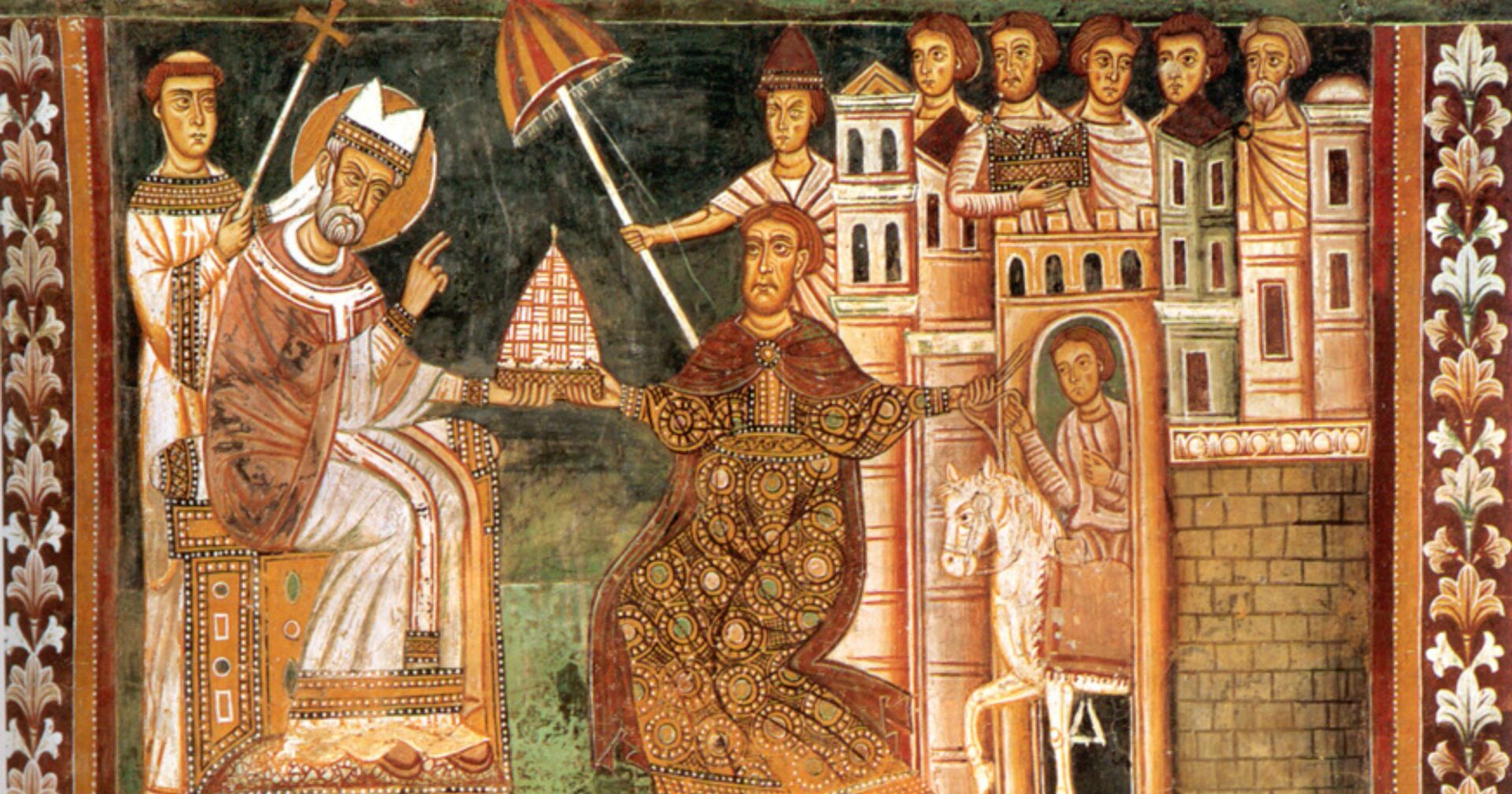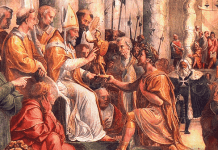The Donation of Constantine is a medieval text that was written around the 8th century AD. It is a document that purports to be a letter from the Roman Emperor Constantine the Great to Pope Sylvester I, in which he granted the Pope and his successors the temporal rule over the Western Roman Empire, as well as various other privileges and benefits. The text became widely known and was frequently cited as evidence of the Pope’s authority over temporal matters, and was used to justify the power and wealth of the Catholic Church for many centuries.
The historical relevance of the Donation of Constantine lies in its impact on the development of the Catholic Church and its relationship with the state. The text served as a source of legitimacy for the papacy and was used to support the claims of the Pope to be the spiritual and temporal ruler of the Western world. It also helped to establish the idea of the “Two Swords” – the idea that the Pope held spiritual authority, while temporal authority was held by the emperor or king. This idea would play a major role in the politics of Europe for centuries to come.
Despite its historical significance, the Donation of Constantine is widely recognized as a forgery. The text was likely written by a member of the papal court in an effort to bolster the authority of the Pope and the Church at a time when they were facing challenges from the secular authorities. Nevertheless, its use was widely accepted and it was only in the 15th century that its fraudulent nature was widely acknowledged.
The implications of the Donation of Constantine are far-reaching and continue to be felt today. The text helped to establish the power and wealth of the Catholic Church and its role as a major political and economic force in Europe. It also shaped the relationship between the Church and the state and helped to define the role of the Pope as the head of the Church and a temporal ruler. The forgery also had a significant impact on the development of the idea of the separation of church and state, as the exposure of the fraud led to a reassessment of the relationship between the Church and the state.
In conclusion, the Donation of Constantine was a significant event in the history of the Catholic Church and its relationship with the state. While it is widely recognized as a forgery, its impact on the development of the Church and its role in society cannot be overstated. Despite its fraudulent nature, the text remains an interesting and important piece of history that continues to influence our understanding of the Church and its relationship with the state.


















Google paying a splendid earnings from domestic 6,850 USD a week, this is awesome a 12 months beyond I was laid-off in a totally horrible financial system. “w many thank you google every day for blessing the ones guidelines and presently it’s miles my md-50 responsibility to pay and percentage it with all and sundry.
.
.
Proper right here I started—————————— >>> WORK AT HOME
I make over 13,000 US dollars every month w0rking parttime. I paid attention to various people letting me know how a reasonable plan of money they might make on the web, so still up in the air to situate out. Indeed, it transformed into all real and it totally changed my life. Everyone should attempt this occupation presently simply by utilizing
this site…… https://salaryweb21.blogspot.com/